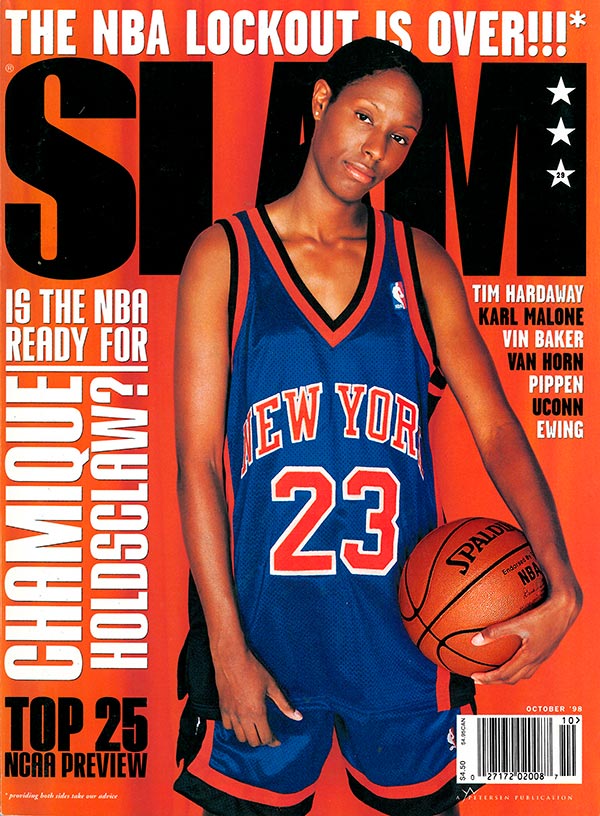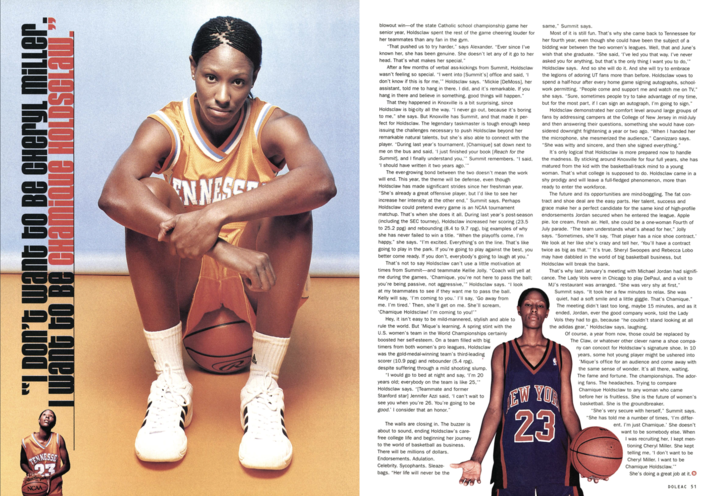WSLAM Archive: Looking Back at SLAM 29 and How Chamique Holdsclaw Redefined the Game
WSLAM 3 Drops This Friday. Tune in here.
Chamique Holdsclaw was wrapping up her junior season with the Lady Vols, leading the team to their third consecutive championship and first ever undefeated season (39-0). This was just the beginning: she went onto finish her collegiate career as the all-time leading scorer and rebounder at Tennessee and is one of just five women’s collegiate players to ever amass more than 2,000 points, 1,000 rebounds, 300 assists and 300 steals.
Following Chamique’s illustrious career, she entered the professional stage with high expectations. And then it happened. She was selected No.1 in the 1999 WNBA Draft by the Washington Mystics and by the spring of ’98, she became the first women ever to grace the cover of SLAM.

The SLAM 29 cover story, which you can read in the SLAM Digital Archive, went a little something like this…
So, when the boys would run, Holdsclaw would watch. When they would leave, Holdsclaw would play one-on-one with her new best friend, and before long, the other guys saw that a girl actually had game.
Holdslaw is also playing ball at 1 a.m., just because the lights are on at the court near her house in Astoria, Queens. And just because she know that running with the locals won’t be too cool this time next year, once the contract has been signed and the shoe deal is done.
The future and its opportunities are mind-boggling. The fat contract and the shoe deal are the easy parts. Her talent, success and grace make her a perfect candidate for the same kind of high-profile endorsements Jordan secured when he entered the League.

Defying expectations and shattering glass ceilings is something Chamique has done throughout her career from stunning the boys at the street courts in Astoria, Queens where she grew up to being named to the US Olympic team in just her second season in the League and helping her team grab gold. Appearing on the cover of SLAM 29 marked a shift in not just the recognition but the acceptance of women’s basketball into mainstream culture. It represented a collective triumph for women’s sports by placing emphasis on the dedication, determination, and immense talent of female athletes—proving that they, too, are deserving of the same appreciation.
The cover served as a catalyst for important discourse surrounding equity in sports and shed light on the value that comes with embracing diverse narratives. Today, Chamique continues to be a beacon of hope and a testament to the transformative power of representation in the game.
You can read this story and more in the SLAM Digital Archive, which has every copy of SLAM, ever.